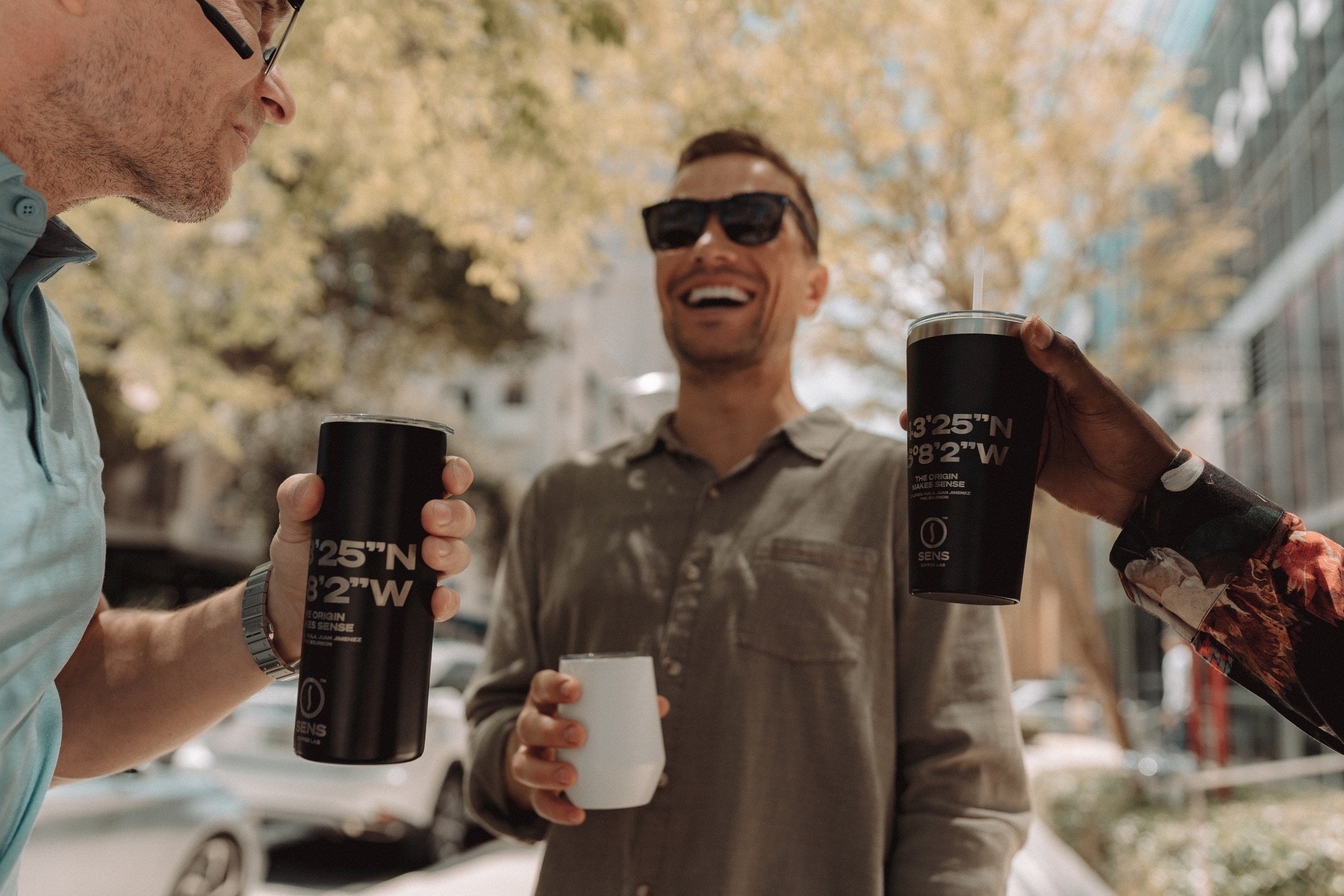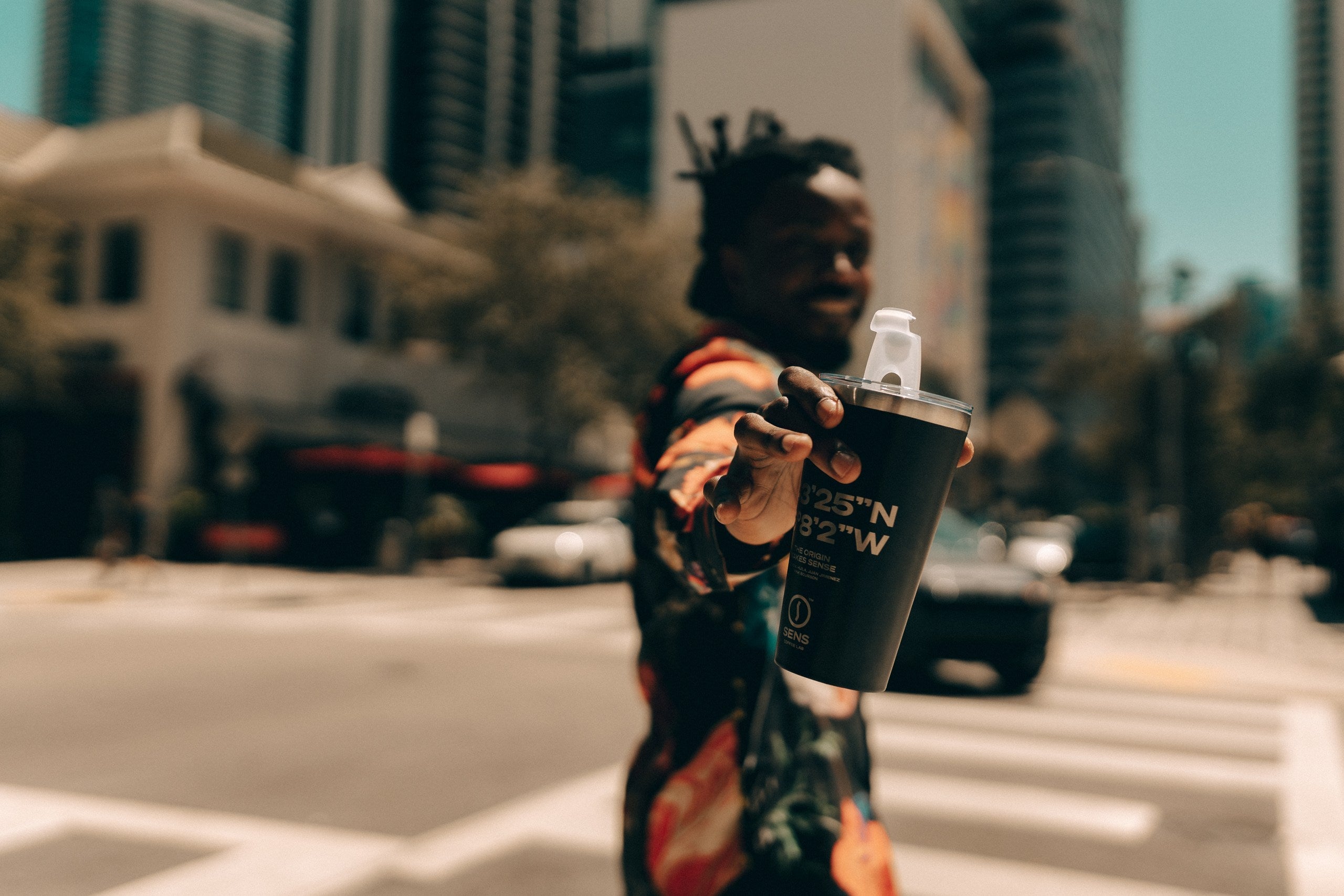
The coffee industry is experiencing a wave of innovation in 2025, introducing new trends that cater to evolving consumer preferences. Here are some key developments to look out for:
Smart Espresso Machines
Advancements in technology have led to the creation of smart espresso machines that offer precise control over brewing parameters. These devices allow users to customize their coffee experience, adjusting factors such as temperature, pressure, and extraction time to achieve the perfect cup.
Cold Brew Expansion
Cold brew coffee continues to gain popularity, with an increasing variety of ready-to-drink options available in stores. Brands are experimenting with new flavors and formulations, including nitro-infused and dairy-free versions, to cater to diverse consumer tastes.
Sustainable Sourcing
Consumers are becoming more conscious of the environmental impact of their coffee consumption. This has led to a rise in demand for sustainably sourced beans, prompting companies to adopt eco-friendly practices and certifications to appeal to environmentally aware customers.
Functional Coffee Beverages
The market is seeing an influx of coffee products infused with functional ingredients such as vitamins, adaptogens, and CBD. These beverages aim to offer additional health benefits, attracting health-conscious consumers looking to enhance their daily routines.
Specialty Instant Coffee
A new wave of specialty instant coffees is emerging, providing convenience without compromising on quality. These products are crafted using high-quality beans and advanced processing techniques to deliver a superior taste experience compared to traditional instant coffees.
Plant-Based Alternatives
The demand for plant-based milk alternatives continues to grow, leading to a wider selection of options in coffee shops and retail outlets. Oat, almond, and soy milks are among the popular choices, catering to those seeking dairy-free or vegan-friendly beverages.
Experiential Cafés
Coffee shops are evolving into experiential spaces, offering more than just beverages. Many are incorporating elements such as art installations, live music, and interactive workshops to create a unique and engaging environment for patrons.
These trends reflect the dynamic nature of the coffee industry as it adapts to changing consumer preferences and technological advancements. As 2025 progresses, coffee enthusiasts can look forward to a diverse array of options that enhance both the quality and experience of their daily brew.

BIGGBY® COFFEE has achieved a significant milestone by securing the 212th position in Entrepreneur's 2025 Franchise 500® list, climbing 31 spots from the previous year. This annual ranking evaluates franchises based on factors such as unit growth, financial stability, and brand strength. The notable advancement underscores the brand's ongoing expansion and solid market presence.
In 2024, BIGGBY® COFFEE experienced substantial growth, opening 29 new locations and signing agreements for 38 additional franchises. The company is actively seeking to broaden its footprint in regions including Tennessee, Georgia, North Carolina, Virginia, Idaho, and Illinois. This strategic expansion aligns with the brand's mission to foster community engagement and support franchisees in building meaningful lives through business ownership.
John Gilkey, President of BIGGBY® COFFEE, expressed pride in the brand's progress, stating, "BIGGBY® COFFEE’s significant rise in the rankings is a testament to our brand’s momentum and unwavering commitment to helping individuals build meaningful lives through franchise ownership." He emphasized the collective effort of the franchise network in achieving this recognition.
As BIGGBY® COFFEE continues its pursuit of reaching 1,000 units by the end of 2028, the brand remains dedicated to its core values of community involvement and franchisee empowerment. The recent ranking in Entrepreneur's Franchise 500® serves as a testament to the company's robust growth and the effectiveness of its franchise model.

The cost of Arabica coffee beans has reached record highs, raising concerns that consumers may soon face higher prices for their daily coffee. As of last week, Arabica prices closed at $4.04 per pound, marking a 26 percent increase since late 2024, when prices were around $3.20 per pound.
This surge is mainly due to prolonged dry and hot weather in Brazil, the world’s largest producer of Arabica coffee. These conditions have made farmers hesitant to sell their crops, further tightening supply. Since Brazil accounts for more than half of the global Arabica production, disruptions there have significant ripple effects on the coffee market worldwide.
Industry analysts, including experts from Bank of America, warn that the supply of Arabica beans is likely to remain strained, potentially pushing retail coffee prices even higher. Adding to the uncertainty, Brazil has experienced its driest conditions since 1981, which has affected coffee trees at a critical stage of their growth.
Colombia, the second-largest producer of Arabica beans, also suffered from unfavorable weather in 2024, further compounding the supply issues. This combination of factors has triggered panic buying, pushing Arabica prices above $4.30 per pound at certain points. The rising costs are expected to impact both consumers purchasing beans for home brewing and coffee shops that may need to raise prices to offset expenses.
With adverse weather conditions persisting in key coffee-growing regions and demand remaining high, the coffee industry faces an ongoing challenge. As a result, consumers should be prepared for possible price increases as the market continues to adjust to these supply constraints.

Starbucks is making significant changes in 2025, leading to the closure of several stores across the United States. This decision has sparked discussions about the challenges the company is facing and what the future holds for the global coffee giant.
Current Challenges Facing Starbucks
Despite having more than 17,000 locations across the country, Starbucks is dealing with several difficulties.
- Labor Relations: In December 2024, the Starbucks Workers United union organized a five-day strike that ended on Christmas Eve. Employees in cities such as Los Angeles, Chicago, and Seattle participated, advocating for better working conditions.
- Post-Pandemic Effects: The lingering impact of the COVID-19 pandemic continues to affect customer traffic and overall sales, influencing store performance.
Details of Store Closures
As of early 2025, Starbucks has closed or announced plans to close multiple locations, including:
San Francisco, CA – 99 Jackson St (closing February 9), 1799 Fulton St, and 2222 Fillmore St (already closed)
Brooklyn, NY – 166 7th Avenue (closing January 30)
Dallas, TX – 1201 Elm St (closed)
Flourtown, PA – 1851 Bethlehem Pike (closed)
Woodburn, OR – 1001 N Arney Rd (closed)
Happy Valley, OR – 12000 Southeast 82nd Avenue Clackamas Town Center (closed)
Overland Park, KS – 10201 W 75th St (closed)
San Jose, CA – 145 W. Santa Clara St (closed)
Wheeling, IL – 751 N Milwaukee Ave (closed)
Strategic Outlook
In October 2024, Starbucks Chief Financial Officer Rachel Ruggeri acknowledged the company’s struggles with declining customer traffic and financial challenges. She emphasized that Starbucks is working on a long-term improvement strategy but cautioned that results would take time.
Although store closures and operational shifts may raise concerns, Starbucks remains a dominant player in the coffee industry. Its ability to adapt to changing market conditions and address internal challenges will be key to shaping its future.

Consumers may soon face higher costs for their morning coffee as supply issues contribute to increasing prices. According to a recent report from Bank of America, the price of arabica coffee beans has reached a record high, closing at $4.04 per pound last Friday. This represents a 26% increase from the fourth quarter of 2024, when prices were around $3.20 per pound.
The report highlights that the cost of coffee pods and drip coffee is also nearing record levels. In 2024, the average price of a mainstream coffee pod rose to approximately $0.55, surpassing the significant threshold of $0.50. Similarly, the price of a cup of drip coffee increased to $0.14 last year, up from $0.13 in 2023.
Bank of America analysts attribute these rising prices to poor harvests and anticipate further supply shortages. For instance, robusta coffee shipments from Vietnam, a major exporter, decreased by 45% in November due to drought conditions affecting crop yields.
As these supply challenges persist, consumers should be prepared for potential increases in coffee prices throughout the year.

On Monday, coffee futures in New York experienced a significant increase, rising over 6% to surpass $4.30 per pound. This marks the 13th consecutive trading session where arabica coffee futures have reached new record highs. The surge is attributed to reports of dry and hot weather conditions developing in Brazil's key coffee-growing regions, leading farmers to hesitate in selling their crops.
Bob Fish, co-founder of Biggby Coffee, which operates 350 stores across several U.S. states, noted, "Panic has finally shown up; prices will continue to rise." He emphasized that only two factors could potentially halt this upward trend: a favorable yield year from Brazil and Vietnam, which isn't expected until August 2026, or a significant decrease in demand due to rising prices. Fish also advised U.S. coffee shops to consider raising their prices to prevent profit margins from diminishing.
The benchmark coffee futures in New York reached an earlier record of $4.2410 per pound, closing the day up 6.2% at $4.211 per pound. The spot contract, set to expire in March, peaked at $4.3195 per pound. So far this year, prices have increased by approximately 35%, following a 70% surge last year.
Market concerns are mounting over low coffee stockpiles in Brazil, which is responsible for nearly half of the world's arabica production. Brazilian farmers have sold about 85% of the current crop and are showing reluctance to sell the remaining stock. A coffee broker pointed out that the remaining coffee might be held by well-financed Brazilian producers who are not in a hurry to sell.
Analysts suggest that the current rally in arabica prices has become somewhat self-sustaining and may be disconnected from fundamental market factors. Some traders believe that the next Brazilian harvest could be better than expected, potentially improving the market outlook. However, until more concrete data is available, the market is likely to remain volatile.
In the robusta coffee market, prices rose by 2.4%, while cocoa and sugar futures experienced mixed movements. Robusta coffee, often used to make instant coffee, saw its prices increase, reflecting the tight supply situation. Meanwhile, cocoa prices fell, and sugar prices remained relatively stable.
The coffee market continues to navigate a complex landscape of supply constraints, weather challenges, and speculative trading, all contributing to the current price volatility.

New Jersey boasts a vibrant coffee culture, with numerous independent cafes offering unique brews and cozy atmospheres. As of October 2024, coffee consumption outside the home has reached its highest level since January 2020, with 45% of Americans enjoying specialty coffee daily. Cold brew, in particular, has gained popularity, with 21% of Americans having consumed it in the past week.
For those seeking exceptional coffee experiences in the Garden State, here are some notable spots:
-
Alkemy Coffee in Flemington offers a diverse menu in a welcoming setting.
-
Avalon Coffee has multiple locations, including Rio Grande, North Cape May, Cape May, and Avalon, each providing a cozy atmosphere and quality brews.
-
Black River Roasters in Whitehouse Station is known for its commitment to sustainable sourcing and roasting practices.
-
Booskerdoo Coffee boasts several locations, including Asbury Park, Middletown Township, Red Bank, Holmdel, Monmouth Beach, and Fair Haven, each offering freshly roasted coffee and baked goods.
-
Rook Coffee, with 11 locations across Monmouth and Ocean counties, is celebrated for its specialty brews and friendly service.
These establishments, among others, contribute to New Jersey's rich and diverse coffee scene, ensuring that residents and visitors alike can find the perfect cup to suit their tastes.

In today’s fast-paced world, technology plays a vital role in business, from emails to instant messaging. AI is set to drive an even bigger transformation, with the potential to add £198 billion in productivity gains for small and medium-sized businesses (SMBs) across the UK by 2030. But to unlock these benefits, businesses need to integrate AI into their daily operations.
That’s where Google, Enterprise Nation’s network of small businesses, and Dr. Grace Lordan, a behavioral science expert from LSE, come in. They’re launching a three-month pilot program designed to help businesses, including London-based coffee brand Grind, explore the impact of AI on their operations.
The program encourages SMBs to adopt AI tools like Gemini, Google’s AI assistant, to streamline daily tasks—whether it’s drafting product descriptions, responding to customers, or simplifying onboarding for new employees. It also explores how Notebook LM’s audio overview feature could help create podcasts for skill development. The goal is to build AI habits by:
-
Starting small and gradually building confidence with AI
-
Reinforcing learning through regular practice and reminders
-
Fostering a supportive AI community through workshops and collaborative sessions
For Grind, AI isn’t just about efficiency—it’s about supporting the people who keep the business running. From roasting beans and developing new products to making coffee and managing logistics, their team works across a variety of roles. AI presents an opportunity to enhance these operations, but only if employees are equipped with the skills to integrate it effectively.
Research from Public First suggests AI-powered tools could boost productivity by 20% for the average UK SMB—essentially adding a digital employee to every five-person team. For challenger brands like Grind, this could be a game-changer, helping them compete with larger businesses in new and exciting ways.
As AI continues to reshape industries, Grind is embracing the opportunity to innovate, grow, and empower its team with cutting-edge tools. This is just the beginning, and we’re excited to see how AI will shape the future of independent businesses across the UK.

On February 9, during Super Bowl 59, Google showcased the story of an Iowa-based coffee company in a special commercial aired on local TV stations.
The ad highlighted BLK & Bold, a Des Moines-born coffee brand, as part of Google Workspace’s "50 States, 50 Stories" series featuring small businesses across the country. The campaign focused on how companies use Google’s AI tools to streamline their operations.
The 30-second spot told the inspiring journey of Pernell Cezar and Rod Johnson, childhood friends who turned their passion into a thriving coffee business. Their goal was to bring a premium coffee experience to their local community, and since launching BLK & Bold, the brand has grown into a nationwide name.
In the commercial, Johnson shared how managing budgets isn’t his favorite task, but with Google Sheets powered by Gemini AI, the process becomes much easier.
Founded in 2018, BLK & Bold started as a small operation in a garage but has since expanded to over 11,000 retail stores, including major retailers like Target, Amazon, and Walgreens.
Beyond coffee, the company is committed to giving back, dedicating 5% of its gross profits to initiatives that support underserved youth and communities.

Philadelphia-based convenience store chain Wawa is energizing Eagles fans with free coffee on Super Bowl Sunday. On February 9, more than 500 Wawa locations across the Philadelphia region will provide customers with free hot coffee of any size until kickoff.
In a statement, Wawa highlighted its deep-rooted connection to Philadelphia sports and the excitement surrounding the Eagles’ championship bid. Chief Customer Officer Alex Costabile expressed enthusiasm for the promotion, emphasizing Wawa’s tradition of celebrating the city’s teams with its customers.
“At Wawa, we’ve always had a special connection to our Philadelphia sports teams, and we get just as excited as our customers do when one of them is playing for a chance to win a championship,” Costabile said. “So, in honor of this year’s football team and to toast this championship game, we are thrilled to offer free any-size hot coffee until kickoff to customers across Pennsylvania, New Jersey, and Delaware. We talk about having Goose Pride here at Wawa, but this week, we’ll be cheering for another bird on Sunday and hope they bring our city another championship! Go Birds!”
This initiative continues Wawa’s tradition of engaging with the local community and supporting Philadelphia’s sports culture. Fans can enjoy a complimentary cup of coffee as they gear up to cheer on the Eagles in the big game.

Kestrel Coffee Roasters is set to open its fourth location this summer at Patrick Leahy Burlington International Airport. Positioned near the Terminal Integration Project escalators, this new location aims to provide travelers with high-quality, locally crafted coffee and food options.
Nic Longo, director of aviation at Leahy BTV, emphasized the airport’s commitment to supporting local businesses that enhance the traveler experience. He stated that Kestrel will offer both passengers and employees a Vermont-crafted experience that aligns perfectly with the airport’s vision.
### From South Burlington to Airport Expansion
Kestrel Coffee Roasters began its journey in 2018 when co-owners Charlotte and Johnny Steverson opened their first location at Technology Park in South Burlington. The space served as both a roasting facility and café, where they also prepared their signature baked goods. Initially, the Steversons had no plans for expansion, but when their friends at Maglianero Café decided to exit the business in 2019, they seized the opportunity to open a second location on Maple Street in Burlington.
Their growth continued with the opening of a third Kestrel café on March 23, 2022, at 77 Pine Street in downtown Burlington, in a building that also houses People's United Bank and apartments.
A New Experience for Airport Travelers
The upcoming location at Patrick Leahy BTV is designed with efficiency and convenience in mind, catering to passengers looking for quick yet high-quality food and drink options. The café will offer:
- Locally roasted coffee and espresso drinks
- Fresh smoothies and breakfast sandwiches
- Grab-and-go items
- Pastries made in Kestrel’s South Burlington kitchen
- Digital ordering via strategically placed QR codes throughout the airport
Johnny Steverson, co-founder of Kestrel Coffee Roasters, expressed excitement about the expansion, stating that great coffee and welcoming cafés can bring people together and strengthen the community.
As Kestrel Coffee Roasters continues to grow, this new airport location will provide travelers with a taste of Vermont’s coffee culture while maintaining the brand’s commitment to quality and local craftsmanship.

The rising cost of coffee has been making headlines in financial and trade publications, raising an important question—what exactly is the price of coffee?
For some, the price of coffee refers to the cost of a latte at their local café, while for others, it means the price farmers receive for harvested coffee cherries. Between these two perspectives, there are numerous price points in the coffee supply chain, from farm-level payments to global benchmark prices.
One of the most widely referenced indicators in the coffee industry is the “C price,” a benchmark that influences the broader coffee trade. Despite being controversial and often misunderstood, the C price plays a key role in price setting within the market.
What Is the C Price for Coffee?
The C price is a global benchmark for green arabica coffee traded on the Intercontinental Exchange (ICE) in New York. The term originated when Central American coffee producers sought to distinguish their coffee from Brazilian coffee.
Through ICE, traders engage in futures contracts, which are agreements to buy or sell a specific amount of coffee at a set price in the future. These trades provide the market with a reference point—the C price—which is used by many in the industry, from farmers to roasters.
How Has the C Price Changed Over Time?
Like other commodities, coffee prices follow cycles of spikes and declines based on supply, demand, weather conditions, and economic trends.
From 1989 to 1994 and again from 2000 to 2004, coffee prices experienced sharp declines following the collapse of the International Coffee Agreement (ICA), which had previously regulated supply and prices.
In the early 2010s, prices surged due to coffee leaf rust disease, which damaged crops in Latin America.
Between 2017 and 2020, coffee prices dropped below $1 per pound, creating another crisis for producers.
In February 2025, the C price exceeded $4 per pound for the first time, making headlines worldwide.
How Speculation Impacts Coffee Prices
While supply and demand play a role in determining coffee prices, speculative trading by hedge funds, investment firms, and individual traders also influences the market. These financial participants often have no direct involvement in coffee production but buy and sell futures contracts based on market trends and economic forecasts.
This speculation can lead to price swings that are not necessarily tied to actual changes in coffee supply, creating uncertainty for farmers and businesses that rely on stable pricing.
Is the C Price a Reliable Indicator?
Despite its widespread use, the C price is not a perfect reflection of the realities faced by coffee producers, roasters, or consumers. It is shaped by financial markets and investor sentiment rather than purely by agricultural conditions or production costs.
While coffee prices will likely continue to dominate headlines in 2025, it is essential to recognize that the C price is a financial benchmark rather than an absolute measure of what coffee is worth. For those involved in the coffee industry, understanding the forces driving these prices is crucial in navigating the ever-changing market landscape.

